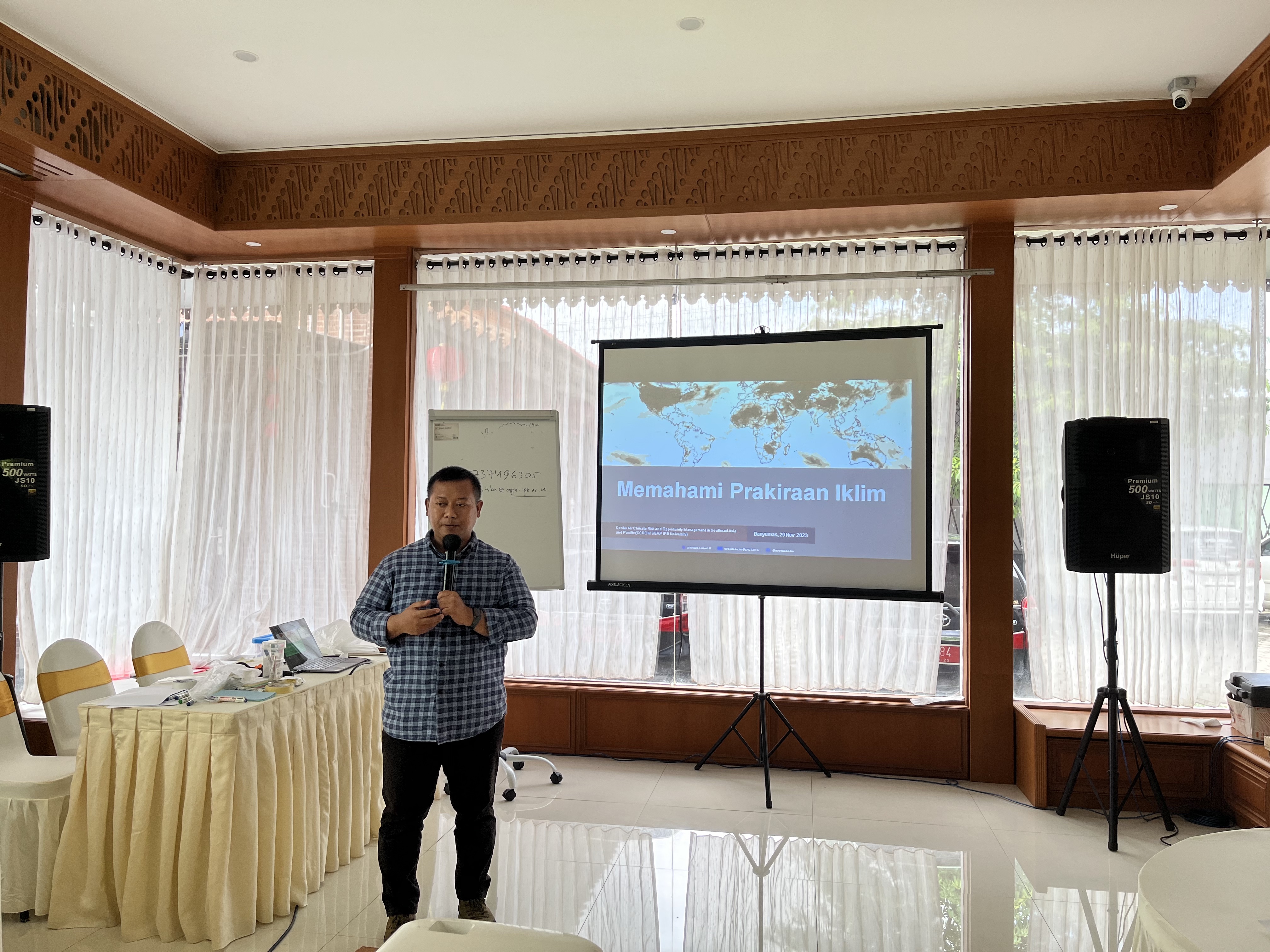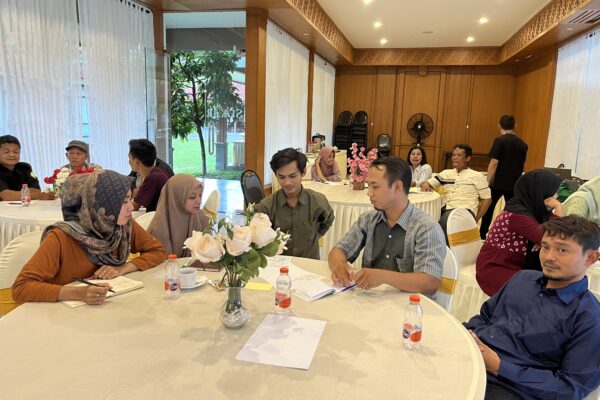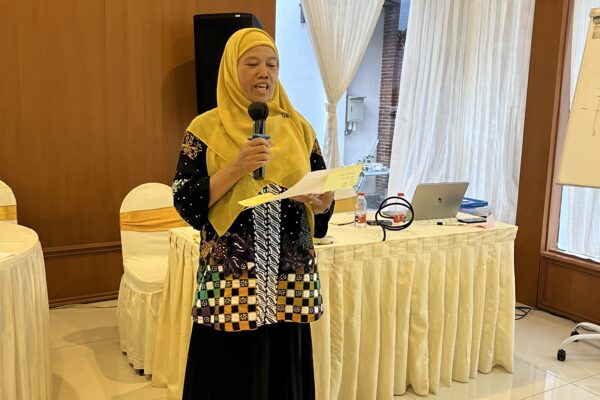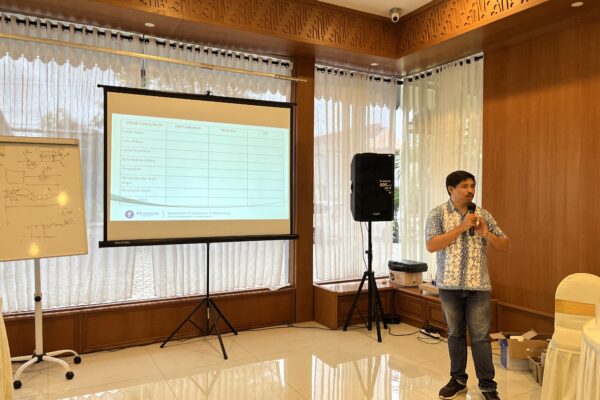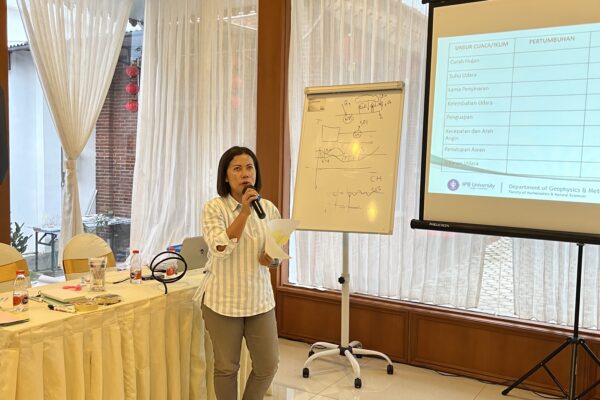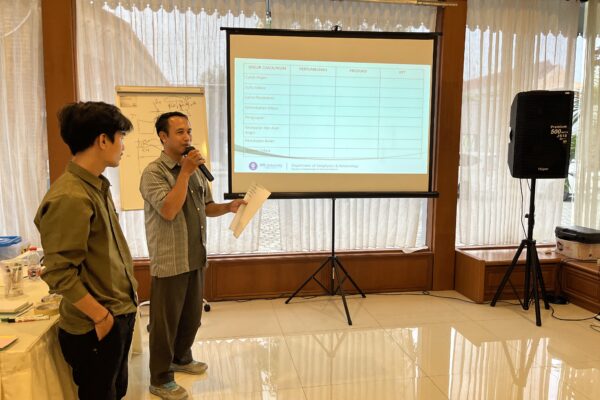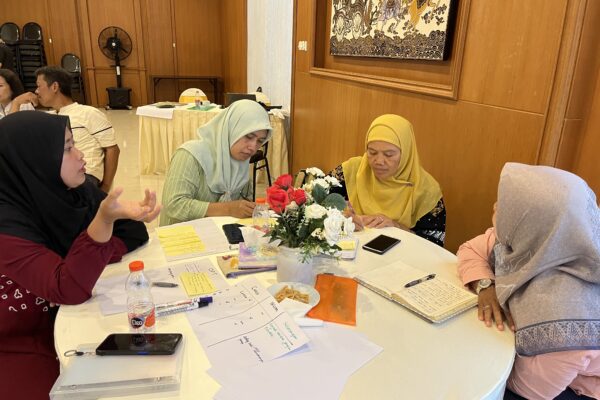As the world grapples with the threat of climate change, Fairtrade has emerged as driving force by keeping climate resilience in agriculture as a crucial part of Fairtrade NAPP 2021-2025 Strategy. However, after recent discussion, it came to light that 7 Small Producer Organizations (SPOs) in Java and Eastern Indonesia were lacking knowledge and awareness about climate change and its impacts to their farming and production. Responding this, Fairtrade NAPP organized a climate change training to raise awareness while conducting practical climate assessments, generate low-cost adaptation measures, and empower individual farmers. In collaboration with the renowned Centre for Climate Risk and Opportunity Management in Southeast Asia Pacific (CCROM-SEAP) of IPB University, this attended by a total of 24 participants out of which, 11 participants are women and 13 participants are men. The outcome? An empowered collective of farmers, board members, and management personnel, armed with practical climate assessments and low-cost adaptation measures.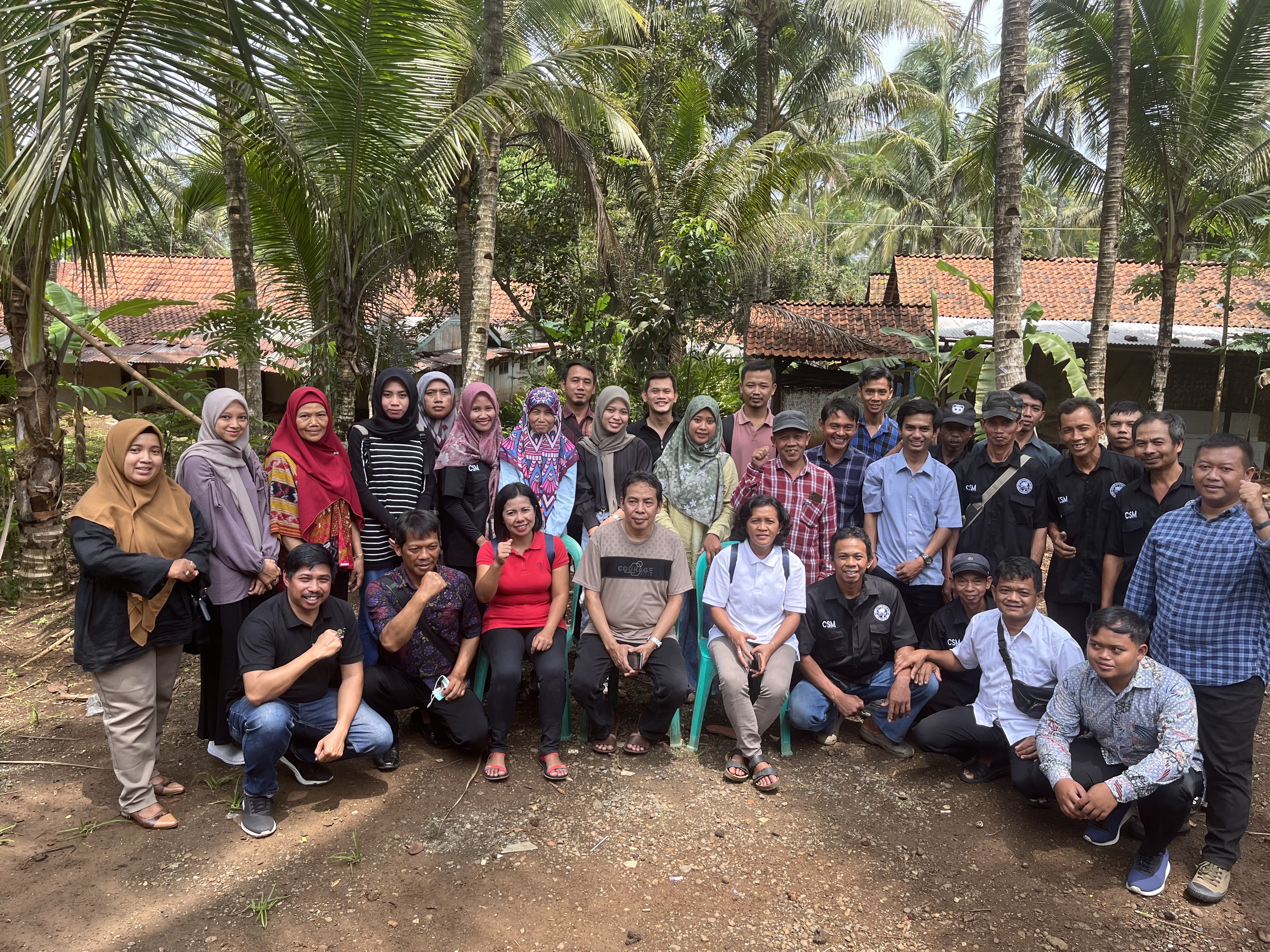
On Day 1, the Head of CCROM SEAP, an expert in Agri-meteorology, Agri-climatology, and Climate Risk Management, delivered a lecture offering comprehensive insights into the phenomenon of climate change and its wide-ranging impacts on various aspects of life, particularly in agriculture. The subsequent training session provided insights to participants into the crucial parameters of weather and climate in agriculture. The session emphasized the significance of measuring these weather and climate elements for a better understanding of their impact on agriculture.
“Previously, I have never learned about theses knowledge of weather and climate, and how their correlation with agriculture. Now I know about meteorology, climatology and how we can relate the information and knowledge to the agriculture and agrobusiness.” – Findi Rantika, Koperasi Nira Kamukten Koperasi Nira Kamukten.
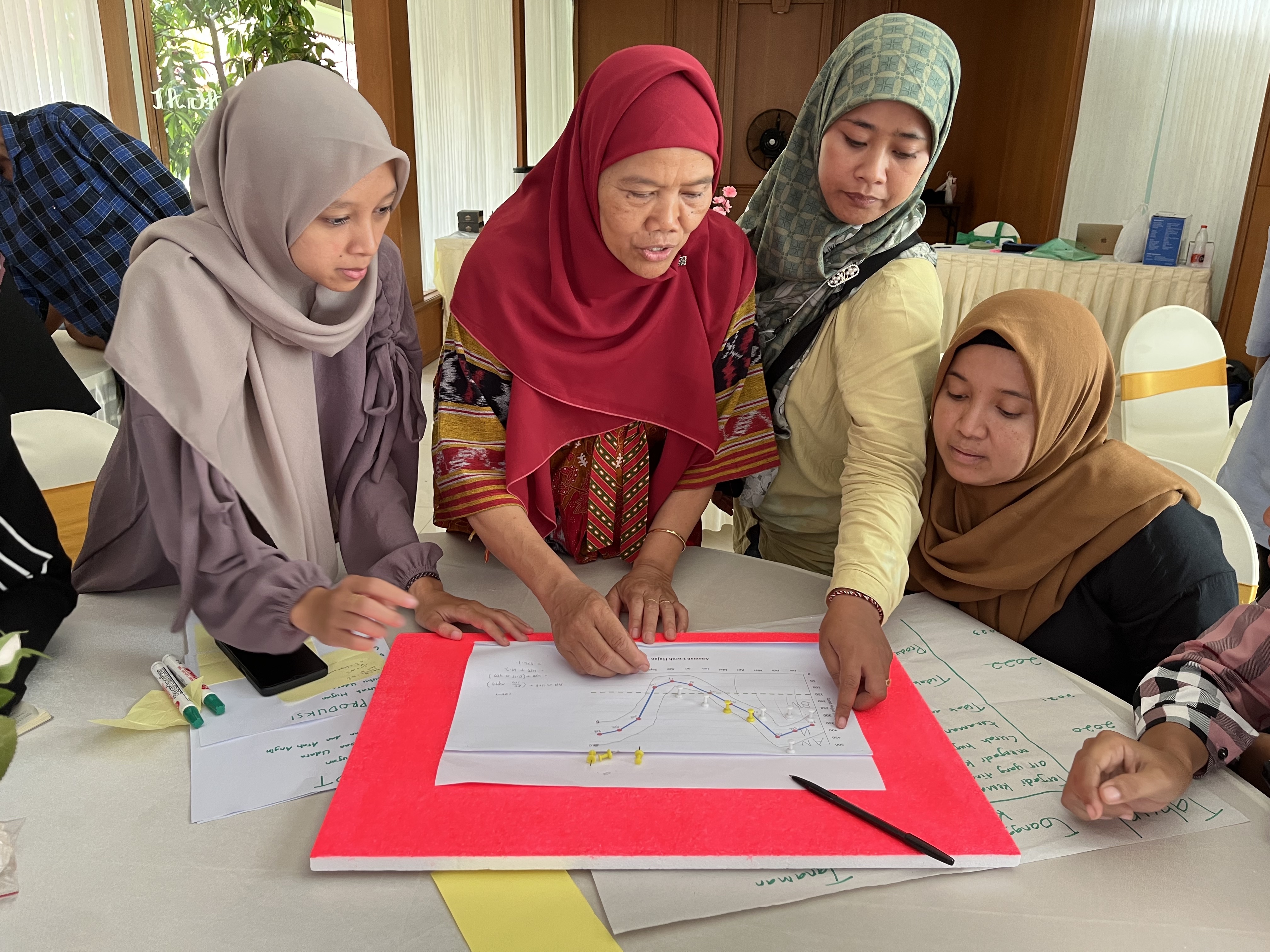 On the second day of the training, we kicked off the morning with an insightful on-farm learning session. The gathering took place at the farm of a farmer-member from Koperasi Coco Sugar Manise. The focus was on discussing practical climate change adaptation actions suitable for smallholder farms, considering that in Indonesia, the average land size is less than 1 hectare.
On the second day of the training, we kicked off the morning with an insightful on-farm learning session. The gathering took place at the farm of a farmer-member from Koperasi Coco Sugar Manise. The focus was on discussing practical climate change adaptation actions suitable for smallholder farms, considering that in Indonesia, the average land size is less than 1 hectare.
This overall training addressed the unique challenges and opportunities in the following ways-
- Agricultural Innovation: It emphasized on enhancing agricultural practices, introducing a low-cost drip irrigation system, organic fertilization, groundcover, and drought-resistant nitrogen-fixing plants like Pinto grass and Arachis Pintoi.
- Crop Resilience: It emphasized on the use of superior crop varieties resilient to climate stress during rejuvenation.
- Pest and Disease Management: the training highlighted the importance of integrated pest and disease management for sustainable farming.
- Conservation Practices: This training advocated for conservation through the creation of rorak (dead-end ditch) for water retention. Organic materials were recommended for improved water retention and temperature regulation.
- Climate Forecasting: This training emphasized the use of climate forecast information to proactively anticipate extreme weather events.
- Economic Insight: This training emphasized farmers to use forecast information not just for weather but also to predict crop prices, providing valuable economic planning insights.
- Alignment with Fairtrade Standards: This training emphasized the seamless alignment of climate change adaptation practices with Fairtrade Production-Environmental Development Standards. This includes the implementation of Good Agricultural Practices for soil, water, and forest conservation.
Participants showcased heightened awareness and readiness to translate newfound knowledge into concrete action. This training recognized the diverse operating areas of Small Producer Organizations (SPOs) in Java and the need for tailored adaptation measures in each unique setting. It also underscored the essential role of comprehensive research, requiring transparent and precise farm data, for effective adaptation planning. This training exemplifies the Fairtrade commitments in nurturing both the land and the livelihoods it sustains.
“It has been a more mind opening learning journey for me, I think us as farmers may have always been using weather and climate data, but more in traditional ways, using our senses, intuition and local wisdom. I am particularly interested in the opportunity of carbon trading, how organizations of farmers may be able to seize this opportunity. I realize that we have to do a lot of works in the future and I am glad that activity like this (the training) helps us better in terms of guidance in doing our works,” – Suprapti Suprapti, Koperasi Produsen Manunggal Adil Sejahtera.
